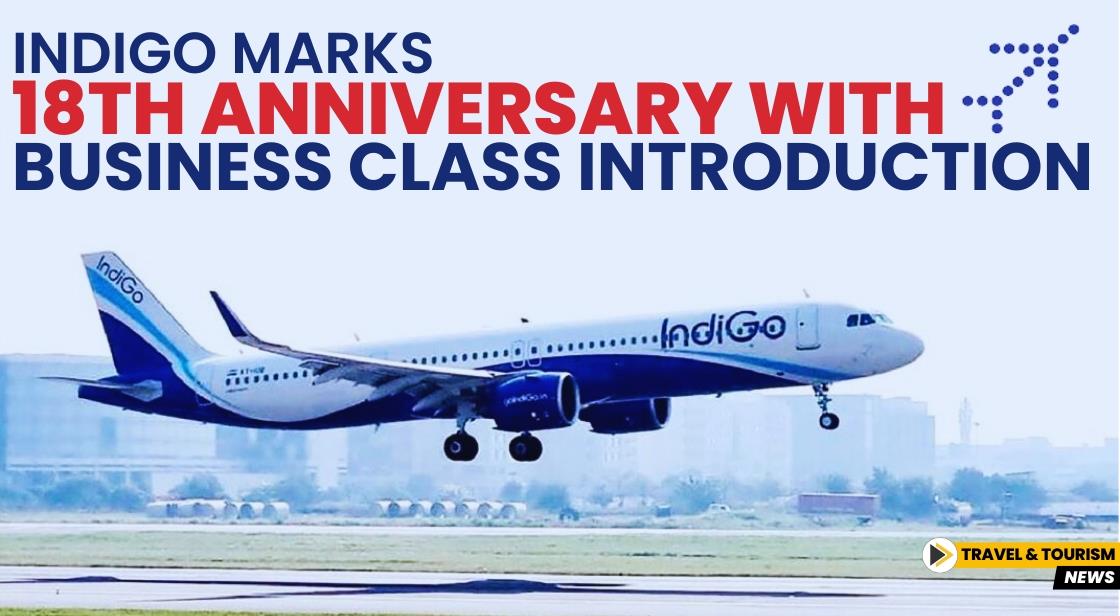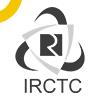IndiGo Marks 18th Anniversary with Business Class Introduction

News Synopsis
In a groundbreaking move that marks a significant departure from its low-cost carrier roots, IndiGo has announced the introduction of business class seating and plans for wide-body aircraft operations. These strategic initiatives aim to broaden the airline's appeal and cater to a wider range of travelers.
Business Class Takes Off
After 18 years of exclusively offering economy-class seats, IndiGo is set to introduce a premium cabin experience. Starting in November, passengers traveling between major Indian cities will have the option to book business class seats, offering enhanced comfort and amenities.
This strategic shift is a bold move for the airline, as it challenges the perception of IndiGo as a budget carrier. By introducing a business class option, IndiGo aims to attract a more affluent clientele while maintaining its strong foothold in the economy segment.
Expanding Horizons: Wide-Body Aircraft and International Routes
In addition to the business class launch, IndiGo has outlined ambitious plans to expand its international operations. The airline intends to acquire Airbus A350-900 wide-body aircraft, enabling it to offer long-haul flights to destinations beyond its current network.
To complement this expansion, IndiGo plans to introduce seven new international routes in the near future, further solidifying its position as a major player in the global aviation market.
A New Era for IndiGo
IndiGo's decision to diversify its offerings is a testament to the airline's growth and ambition. By introducing business class and expanding its international network, IndiGo is positioning itself to compete more effectively with full-service carriers while maintaining its core strength as a low-cost airline.
As the Indian aviation industry continues to evolve, IndiGo's strategic moves are likely to reshape the competitive landscape and offer passengers a wider range of choices.
History of IndiGo
IndiGo: A Rising Star in India's Aviation Industry
IndiGo, India's largest airline by market share, has rapidly ascended to prominence since its inception in 2006. Founded by Rahul Bhatia of InterGlobe Enterprises and Rakesh Gangwal, a US-based Indian entrepreneur, the airline adopted a no-frills, low-cost model that resonated with budget-conscious Indian travelers.
A Focus on Efficiency and Affordability
IndiGo's business model centered on operational efficiency. By standardizing its fleet with Airbus A320 aircraft, the airline streamlined maintenance and training processes. Additionally, a quick turnaround time between flights maximized aircraft utilization. This approach allowed IndiGo to offer significantly lower fares compared to its competitors.
Expansion and Dominance
Over the years, IndiGo has expanded its network rapidly, connecting major cities and smaller towns across India. The airline has also ventured into international markets, establishing its presence in several countries. This aggressive expansion strategy has solidified IndiGo's position as a dominant player in India's aviation industry.
A Shift in Strategy
While IndiGo has built its reputation as a low-cost carrier, the recent announcement of its foray into the business class segment marks a significant departure from its core strategy. This move is aimed at capturing a larger share of the premium travel market and competing more directly with full-service carriers.
Challenges and Future Outlook
Despite its success, IndiGo has faced challenges such as fuel price fluctuations, intense competition, and regulatory hurdles. However, the airline has demonstrated resilience and adaptability, enabling it to overcome these obstacles.
As the Indian aviation industry continues to evolve, IndiGo's ability to innovate and cater to the evolving needs of its customers will be crucial for maintaining its leadership position. The airline's focus on expanding its network, enhancing customer experience, and adopting new technologies will be key to its future success.
Conclusion
IndiGo's announcement of its first-ever business class service marks a transformative moment for the airline, which has long been synonymous with budget travel. This strategic shift highlights IndiGo’s commitment to broadening its appeal and enhancing the travel experience for a wider range of passengers. By introducing business class seats and planning for fleet expansion with Airbus A350-900 planes, IndiGo is positioning itself for growth in both domestic and international markets.
The new service, available from November, is set to attract travelers seeking added comfort on domestic routes, signaling IndiGo's evolution from a low-cost carrier to a more versatile airline. Coupled with plans to expand its international network and add seven new routes, IndiGo is poised to strengthen its competitive edge in the global aviation sector.
Overall, these developments represent a significant leap for IndiGo as it navigates the changing landscape of the aviation industry, aiming to meet the diverse needs of its growing customer base.
You May Like









